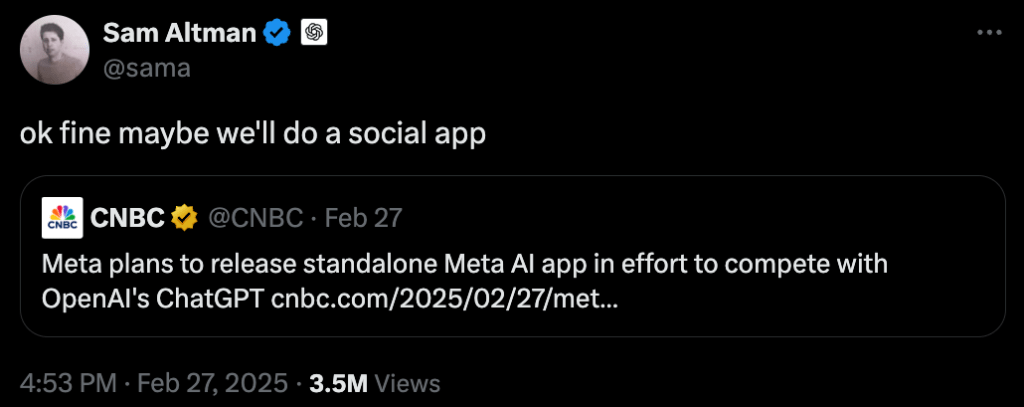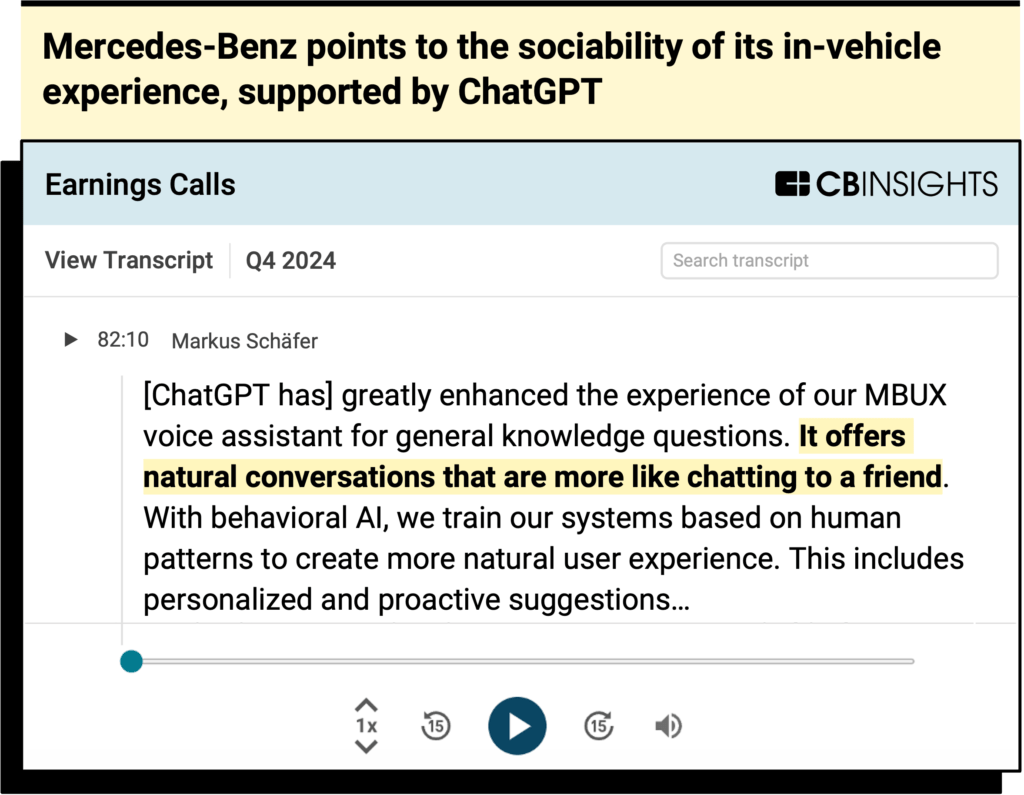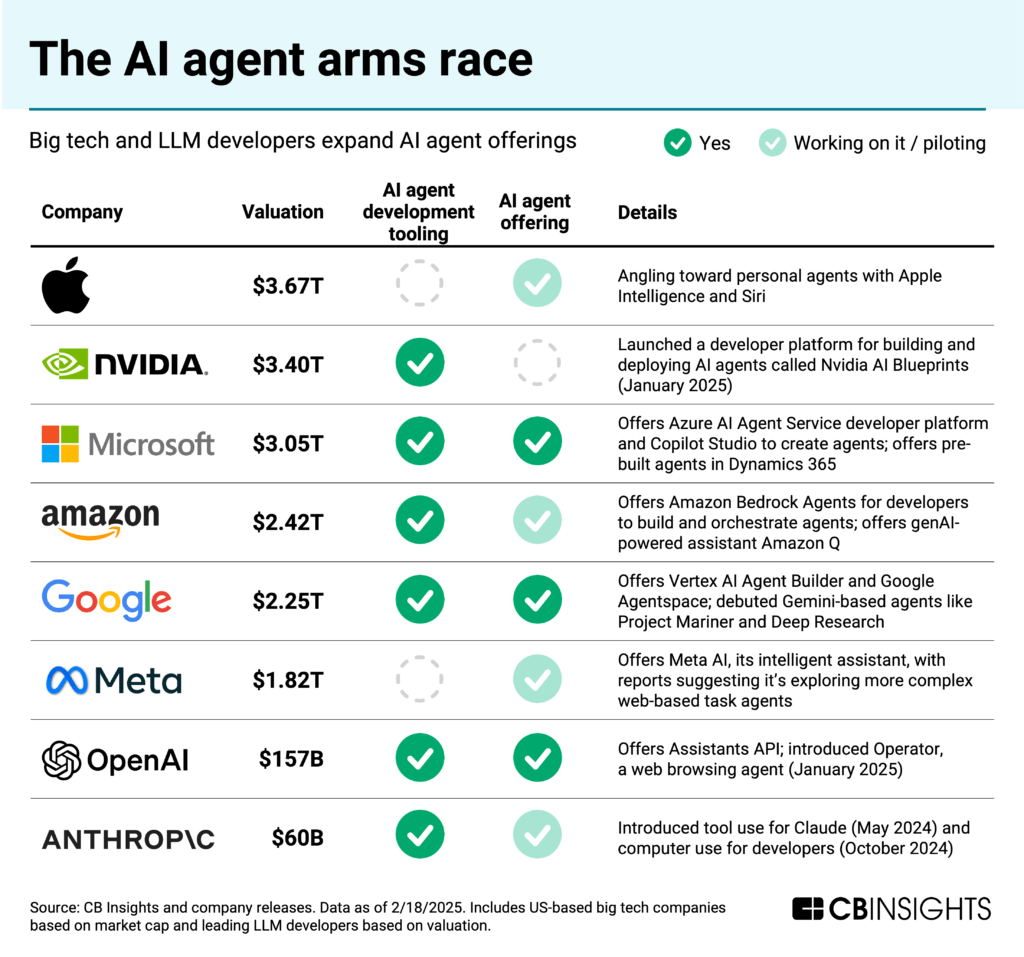Chatbots’ record quarter, artificial emotional intelligence, and more from the CB Insights newsletter.
This research comes from the March 4 edition of the CB Insights newsletter. You can see past newsletters and sign up for future ones here.
AI chatbots saw a record 427M app downloads last quarter — up 42% vs. Q3.
Now Meta wants in on the action.
The tech giant reportedly plans to spin Meta AI into a standalone app to compete with ChatGPT, Google’s Gemini, Perplexity, and other chatbot apps.
ChatGPT is still king with nearly a quarter of AI chatbot app downloads in 2024 and 400M weekly active users across platforms (not just mobile).
But Meta has a massive in-built user base, including ~700M people who already interact with Meta AI features each month across apps like Facebook and Instagram.
The battle for attention is on.
Source: X
One of the differentiators for social AI applications will be emotional intelligence — an area where OpenAI’s latest model, GPT-4.5, shows promise.
While many headlines have focused on the model’s eye-watering costs, one notable advance is its reported ability to interact with greater empathy (an area where Anthropic’s Claude has so far been superior).
This matters because the more natural AI sounds, the easier it will be for consumers to see it fitting into their lives.
It also makes AI even more formidable in both personal and business settings if the AI can be both higher IQ and EQ than most of us pesky ol’ humans.
Businesses are catching on: More public cos are citing AI as a “friend” or “companion” on earnings calls in an effort to make B2C services more personal.
Mercedes-Benz, for instance, envisions drivers chatting with its MBUX voice assistant (which is built on ChatGPT) like a friend.
Source: CB Insights — Mercedes-Benz Q4’24 earnings call
Beyond emotional connection, AI developers are also making their chatbots more useful through agentic capabilities. This dual focus on both feeling and function will shape the competitive landscape moving forward.
While still constrained by reliability and access issues, web-browsing agents like OpenAI’s Operator signal a future where humans interact regularly with AI agents that take actions on their behalf.
Already nearly every tech giant, plus leading LLM developers like OpenAI and Anthropic, have developed AI agents or are building out tools for others to develop them.
In a head-to-head matchup, OpenAI and Meta would bring distinct sets of advantages.
OpenAI has already built user habits with ChatGPT and is now layering agent capabilities on top. Meta must convince users its AI offering brings something meaningfully different.
But Meta’s experience in the social realm, combined with its existing algorithms, could give it an edge in creating AI that feels like it belongs in human conversations.
Watch for both companies to rapidly iterate on their consumer agent offerings in the coming months.
Related AI research from CB Insights:
If you aren’t already a client, sign up for a free trial to learn more about our platform.









0 Comments